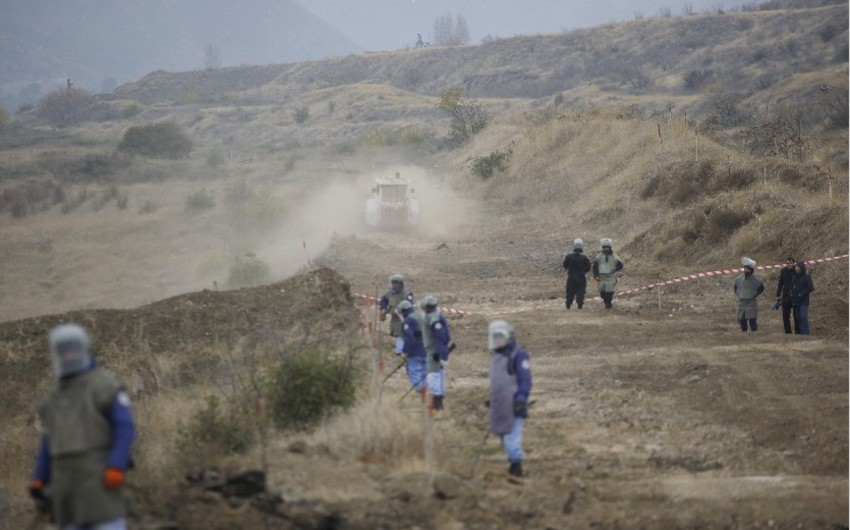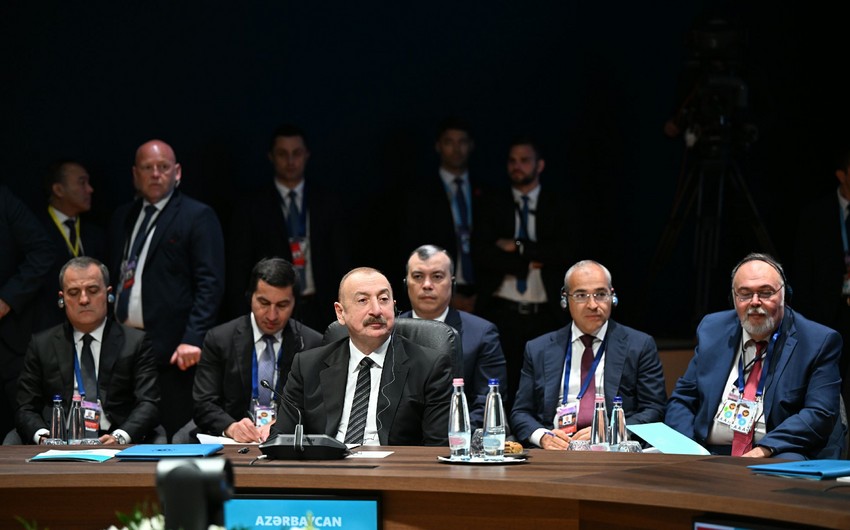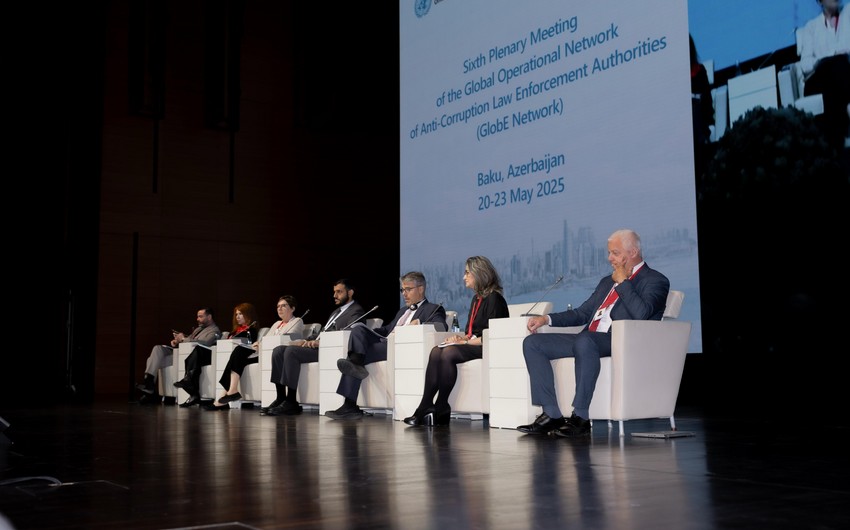British journalist Neil Watson published an article on the "nj.com" portal about the problem of demining in the liberated territories of Azerbaijan, Ednews informs.
According to him, there has been little real assistance from the West to help Azerbaijan with this mammoth task.
The article says that Azerbaijan faces the huge task of cleaning up an estimated 1.5 million landmines that were indiscriminately laid in the territory of Karabakh which it recently recovered from its neighbour Armenia: “The mines make it difficult to rebuild communities and resettle civilians in an area of 7,000 sq km, almost three times the size of Luxembourg. Azerbaijani internally displaced persons (IDPs), who had been driven off their land in Karabakh by Armenian forces in the 1990s, number 650,000. They are understandably keen to return now that Azerbaijan has recovered its territory. But mine explosions are killing and injuring people who venture back before the areas are ready.”
Elchin Amirbayov, Azerbaijan’s Representative to the President for Special Assignments, said in a telephone interview that the fact that these mines were planted by Armenia indiscriminately and sometimes without any military necessity, with neither markings nor fencing, this makes de-mining more difficult and it continues to claim lives and poses a major threat to innocent civilians.
There has been little actual assistance from the West to help Azerbaijan in this gigantic task, apart from help in training from the United Nations Development Programme (UNDP).
The article says that since a ceasefire agreement was signed in November 2020, the West has provided only $12.5 million to Azerbaijan’s National Agency for Mine Action (ANAMA), a drop in the ocean compared to the $25 billion that the de-mining is estimated to cost. Azerbaijan itself has allocated over $11 billion for reconstruction for 2022-2026.
In Karabakh, 147,988 hectares are still classed as highly contaminated areas, while 675,570 hectares are considered medium and low-threat areas.
Azerbaijan has reached out to Armenia for maps of the formerly occupied territories, but Armenian officials initially denied having such maps, then agreed to exchange some maps for detained soldiers. The maps they eventually gave Azerbaijan reportedly cover only 5% of the areas recovered by Azerbaijan, and of these maps only 25% are accurate. Armenia, on its part, claims it has provided all the maps in its possession.
One of the biggest hurdles to de-mining is cost. While producing a landmine is relatively cheap from $3 to $75 dollars, according to the International Red Cross, the cost of removing a single mine can range from $300 to $1,000 dollars. Even for Azerbaijan, a relatively affluent country owing to its abundant natural gas resources, this poses a major challenge.
Neil Watson notes that considering the importance Western countries have given to Ukraine makes it more likely that demining in Azerbaijan will become an afterthought for donors.
Yet there are signs of hope. On February 7, the European Union, the UNDP, and the Azerbaijani government launched a demining project funded with €4.25 million from the European Union. The project will cover 20 villages and benefit 33,604 families.
It is expected to enhance the capacity of local institutions and foster a partnership between local and international NGOs. It will also strengthen ANAMA in information management and the application of innovative solutions in de-mining operations.
UNDP says it will support ANAMA in training, equipping, and deploying emergency response teams to detect and destroy mines and unexploded ordnance. In addition, UNDP will develop maps for mine detection and will help in procuring special equipment. The UNDP has also established the first female teams in Azerbaijan to carry out demining operations, which is traditionally considered a male occupation.
“Mines and other explosive ordnance hinder the safe return of internally displaced people, blocking them from accessing their homes and agricultural fields, hence depriving them of opportunities to rebuild their lives,” said Nuno Queirós, the UNDP’s Representative in Azerbaijan.
In November, Vugar Suleymanov, Chairperson of ANAMA, reported that 111,207 hectares of contaminated land had been cleared since 2020.
“Involvement of women in such an important activity as humanitarian demining is especially essential and will make many contributions towards the achievement of the Sustainable Development Goals,” said Alessandra Roccasalvo of the UNDP.
Azerbaijan’s first state programme to resettle its IDPs called the ‘Great Return’, aims to resettle 140,000 people in Karabakh by 2026. The first pilot project began in July 2022: ten families arrived in the relatively uncontaminated village of Aghali in the remote south-western Zangilan district, the vanguard of some 1,350 people expected to repopulate the village.
The government is expanding pilot projects to Fuzuli and other regions, as it tries to accelerate returns to less contaminated areas.
With its deminers having to innovate in a challenging environment, Azerbaijan is now ready to share its growing expertise with other countries, so that its lessons and approaches can feed into other efforts around the world. This would not only set a commendable example but could also persuade more international donors to contribute.
“We are ready to share our own experience. In size, our country is not huge, but one-tenth of our population has been affected by mine contamination. There are another 30 countries in the world that are affected by regional and ethnic conflicts. And landmines are the most treacherous warfare tools. You have millions of people affected and this has still somehow not caught the attention of those formulating the Sustainable Development Goals,” pointed out Amirbayov via telephone.
A Ukrainian mission recently visited Azerbaijan to better understand Azerbaijan’s approach to de-mining. A joint Saudi-Azerbaijani company has also been formed to apply Azerbaijan’s know-how and technologies in other parts of the world.










